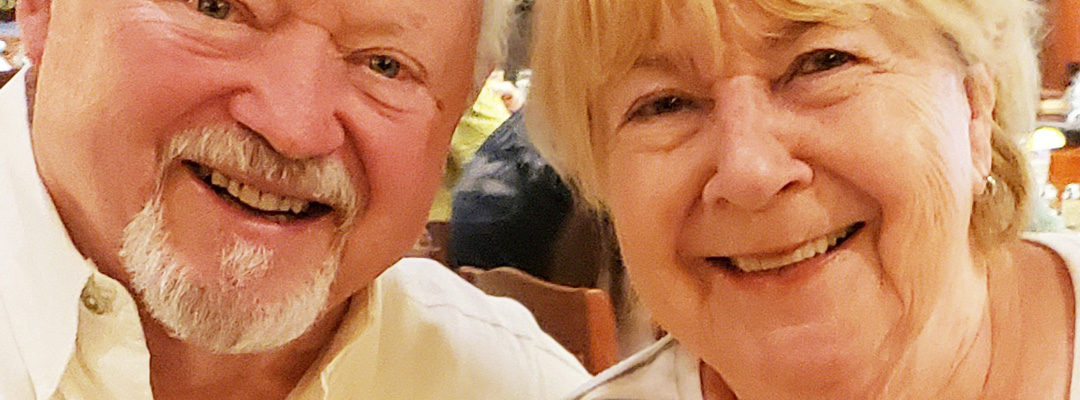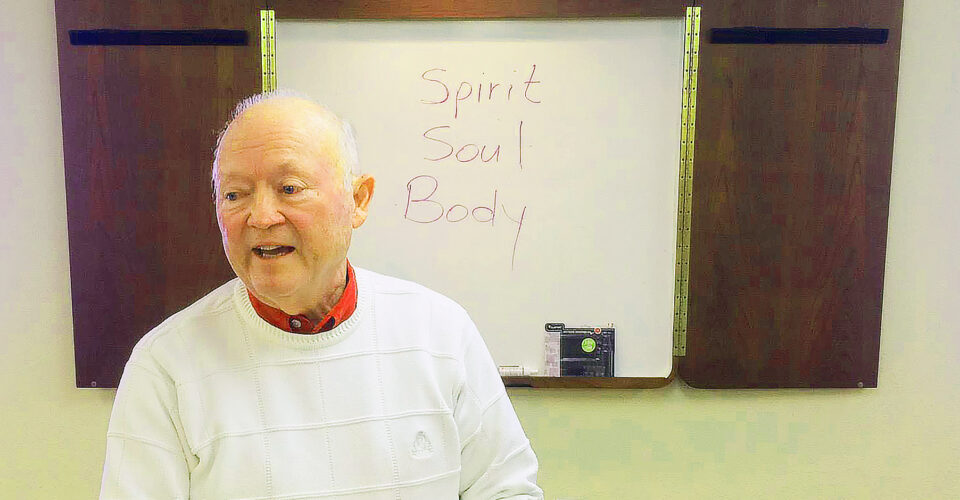Little did Hall Powell know that when he declared Business Administration as his major track at the University of Alabama in the Fall of 1956, that his “business” career would evolve into 40 years in the nonprofit sector, both as a development officer and consultant. Hall’s “business” ultimately became a ministry of philanthropy. The 21 years in the private business sector, prior to entering into the wonderful world of philanthropy, definitely helped to prepare him for an impactful and successful career.
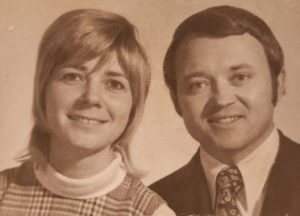 Hall and began his business career in Decatur, Georgia with Powell & Company Insurance, a multiple-lines general insurance agency, founded by Halls’ grandfather, George W. Powell. For five years, Hall developed skills in in how to develop long-term relationships with individuals and corporations, putting the needs of policy-holders as the priority foundation for success. Hall’s efforts resulted in helping to build one of the most successful general insurance agencies in the South. He built his business by understanding that success was determined by identifying a need, meeting the need, and stewarding relationships with his clients.
Hall and began his business career in Decatur, Georgia with Powell & Company Insurance, a multiple-lines general insurance agency, founded by Halls’ grandfather, George W. Powell. For five years, Hall developed skills in in how to develop long-term relationships with individuals and corporations, putting the needs of policy-holders as the priority foundation for success. Hall’s efforts resulted in helping to build one of the most successful general insurance agencies in the South. He built his business by understanding that success was determined by identifying a need, meeting the need, and stewarding relationships with his clients.
Success in the insurance industry led Hall to accept an offer from Johnson & Johnson to manage a territory for a new manufacturing division of medical/surgical supplies for hospitals, and physicians. His challenge and opportunity were two-fold: First, to promote and convince hospitals and physicians to use the new products, and secondly, to bring on board the commercial supply system to sell and distribute the J&J products within his three-state territory. Hall’s career in the medical/surgical supply business led him to be affiliated with Baxter/Travenol, Inc, and General Medical Corporation, Inc.
Success in the medical/surgical manufacturing industry required (1) a preferred product because of uniqueness and performance, (2) a way to effectively market the products to users and suppliers, and (3) a manufacturer/customer relationship built on trust. These same principles would eventually accompany Hall into the nonprofit sector.
In 1974, Hall was ordained for pastoral ministry by the Southern Baptist Convention, a role in which he served for nine years. The pastoral experience instilled within him the desire to help other churches and faith-based, nonprofit organizations acquire and develop resources for their ministries. To support his family while involved in church-planting, Hall returned to the wholesale medical supply industry. One day in 1983 he received a phone call that was to result in a new direction for the “calling” upon his life.
In 1983 Ronald Reagan was campaigning for the presidency, and a good friend of Hall decided to run for the U.S. Congress for the 5th District of North Carolina. Hall was asked to raise funds for the campaign with the understanding that if his friend won the seat in Congress, he would join the new congressman’s senior staff in Washington. The fundraising campaign was successful, exceeding the goal, but by election time, Hall decided he did not want to stay in politics as a career. But, because he had been successfully involved in the campaign, another person in the campaign referred Hall to Ketchum, Inc. in Pittsburg, Pennsylvania, which, at that time, was the oldest and largest nonprofit fundraising consulting firm in the nation. In 1984, Hall was invited to join the firm, and to serve the firm out of its newly established regional office in Charlotte, North Carolina. After a year of on-the-job training, he was assigned to direct, what was at that time, the largest capital campaign conducted in Charlotte. The $10 million campaign to fund a youth and young adult alcohol and drug treatment facility exceeded its goal, and the Board of Directors asked Hall to establish and serve as the CEO of a supporting foundation for the treatment center. It would serve as the fundraising arm of the organization. The Amethyst Foundation was established.
During his time at Amethyst Foundation, Hall helped establish the first National Society of Fundraising Processionals (NSFRE) chapter in Charlotte, North Carolina, as he did so again In Wilmington, North Carolina a few years later. Hall was awarded the Certified Fund-Raising Executives (CFRE) designation in 1989 while earning his MBA in the first Executive MBA program at Winthrop University in Rock Hill, South Carolina. Soon after he graduated from Winthrop University, Hall was invited to participate in the College of Business as an adjunct professor.
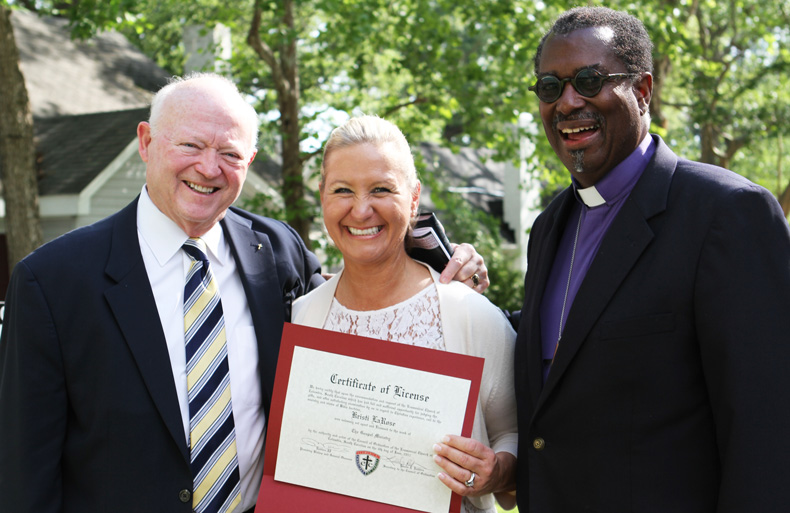
In 1991, Hall was recruited to serve as the first Executive Director of New Hanover Medical Center Foundation which was formed to be the fundraising arm for the nonprofit medical center in Wilmington, North Carolina. In that same year, Patricia F. Lewis became president and CEO of NSFRE, and the National Assembly was created (later renamed Association of Fundraising Professionals (AFP)the Delegate Assembly to reflect growing international membership) with proportional representation from all 119 chapters. The Board decreased to 35 directors and Hall was invited in 1994 to serve as one of the directors. After Hall rotated of the Board in 1996, the new millennium created opportunities for the association to realize its full potential, and it changed its name in 2001 to the Association of Fundraising Professionals (AFP). Before leaving New Hanover Regional Medical Center Foundation in 1996, Hall led a $12 million capital campaign to fund the building of the Zimmer Cancer Center at the medical center.
In June of 1996, the Dean of the College of Business at Winthrop University, asked Hall to become a faculty member and Administrator of the Executive MBA program. He also wanted Hall to develop a nonprofit curriculum for the college, and establish a fundraising program. He agreed to go to Winthrop with one condition, that he be allowed to independently consult with nonprofit organizations. This was agreed to and Hall served the college as a professor and administrator until 1999 when he was invited to become an equity partner in a newly formed fundraising consulting firm in Charlotte, North Carolina named First Counsel, Incorporated. Success with that firm led Hall to be recruited to join one of the oldest and largest fundraising consulting firms in the South, at that time, Alexander, Haas, Martin & Partners, Inc. of Atlanta, Georgia.
While serving as a consultant to The Memorial Health University Medical Center 2003, Hall was asked to take over the leadership of the Memorial Health University Medical Center Foundation where he instituted a comprehensive, major gifts fundraising program to provide ongoing philanthropic support for the medical center. Before he retired from the foundation in 2007, Hall led a successful major gifts campaign to raise $37 million that would fund the building of an advance cancer research facility on the medical center’ campus.
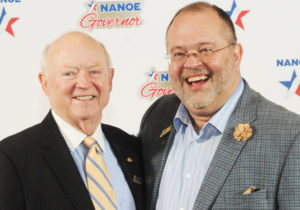 Soon after his retirement to Kure Beach, North Carolina, Hall was introduced to Jimmy LaRose and the Major Gifts Ramp Up model that is offered and implemented for nonprofit clients through Development Systems International (DSI). Seeing how the donor-sensitive model of major gifts fundraising reflected his own convictions, and ethical principles of helping clients build long-term relationships with donors, while helping clients to achieve financial stability, Hall joined DSI as Senior Vice-President, and continues to serve clients through his cohort of fellow consultants.
Soon after his retirement to Kure Beach, North Carolina, Hall was introduced to Jimmy LaRose and the Major Gifts Ramp Up model that is offered and implemented for nonprofit clients through Development Systems International (DSI). Seeing how the donor-sensitive model of major gifts fundraising reflected his own convictions, and ethical principles of helping clients build long-term relationships with donors, while helping clients to achieve financial stability, Hall joined DSI as Senior Vice-President, and continues to serve clients through his cohort of fellow consultants.
The H. Hall Powell, Jr. Nonprofit Management Library includes thousands of documents, tutorials, presentations, manuals, videos, audios, curriculum and exams vital to enhancing nonprofit performance. C-Suite Executives save hundreds of hours as they CUT-AND-PASTE their way through projects using fresh material they now own.
Hall approaches fundraising consulting as a continuing ministry of serving others who are called to show God’s mercy to people in need of physical, mental, and spiritual care. And, where appropriate, he teaches the spiritual principles of his book, The Missing Link, to those seeking to experience more reality in their faith walk.
Hall Powell wasn’t raised in the in the traditional, Christian Church way of which was so common in the Bible-Belt South. His parents were godly people, and from them he was inculcated with the belief of a Creator God who was a loving God. His belief was not nurtured within an institutionalized system of learning or worship, so when he became a true follower of Jesus Christ at age thirty-three, being a member of an organized, institutional church was an extreme spiritual culture change for him. And, even more amazing was the fact that he ultimately became an ordained minister within that institution.
Early in his pastoral and preaching ministry Hall realized that, while he was preaching and teaching the truth of the Bible, much of what he was preaching and teaching was not being manifested as being true in his own Christian life; there was something missing in his Christian “walk.” It was at that point that the Spirit of God revealed to him a “missing link” in the lives of most professing Christians which was resulting in a religion without validity or evidence of reality beyond head knowledge. As he grew spiritually and began submitting to God’s process of bringing me into conformity with the image of His Son, he began experiencing the reality of the life of Christ within himself on a day-to-day basis. Hall eventually wrote a book that explains what the “missing link” is and how a seeker of true Truth can have “the Power of His resurrection” manifested in reality as the normal Christian life. The name of the book, now in its fourth edition, is entitled, The Missing Link, A Guide to Spiritual Reality.
